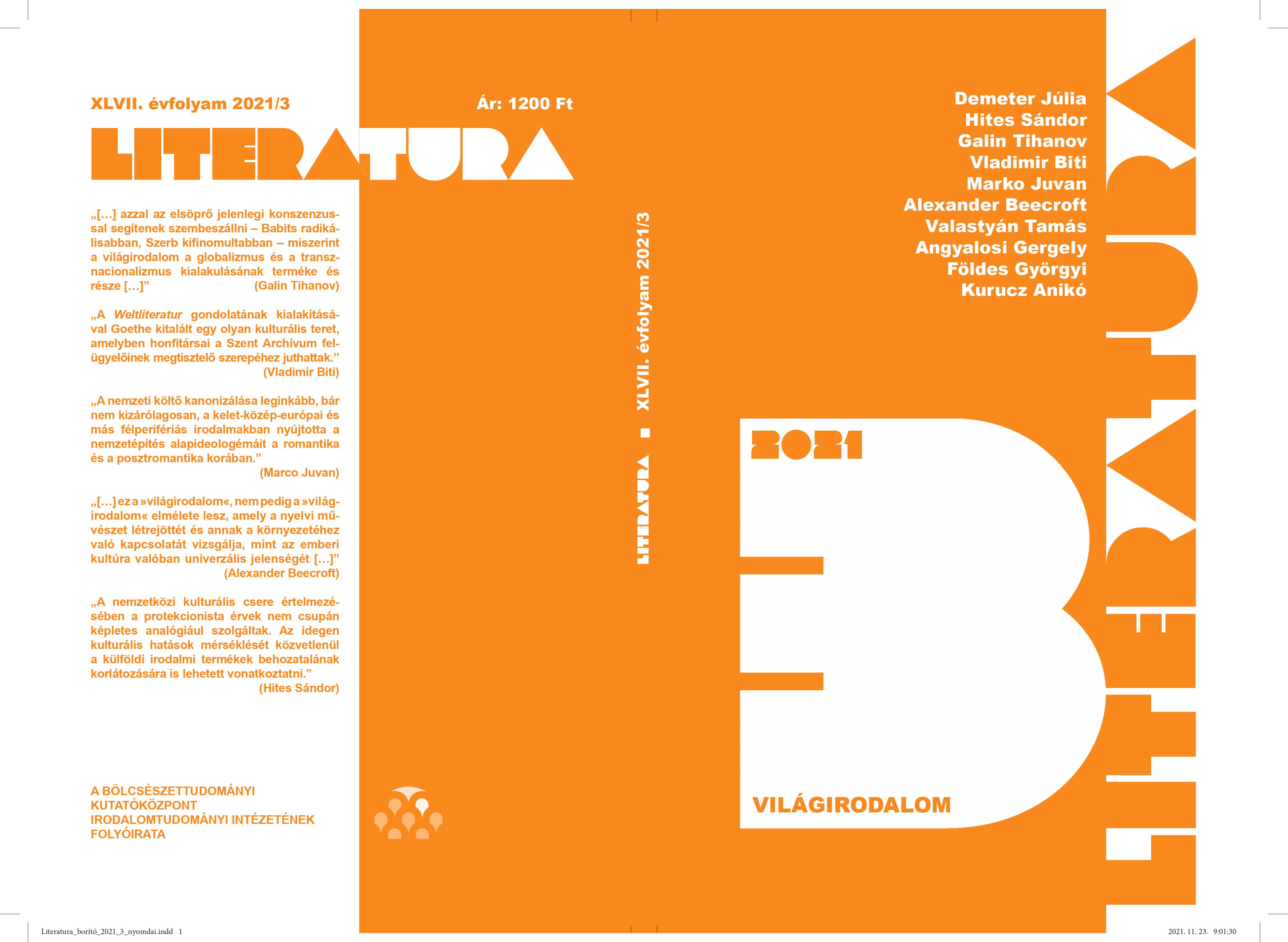A világirodalom protekcionista gazdaságpolitikáiról
Absztrakt
On the Protectionist Economies of World Literature
The paper looks at the German reception of the concept of Weltliteratur in the 1830-40s and argues that this period witnessed a growing suspicion toward the free trade model that underlay Goethe’s initial idea. Informed by the rise of the German customs union and the appeal of Friedrich List’s protectionist trade policies, a wide range of authors and critics (from Georg Gervinus to Georg Herwegh to Karl Gutzkow) made a case for restricting the free flow of literary products in the belief that unrestrained exchange would only serve the already overly dominant national literatures, such as the English and the French, and hinder the development of more backward ones, such as the German, and their national literary markets.



